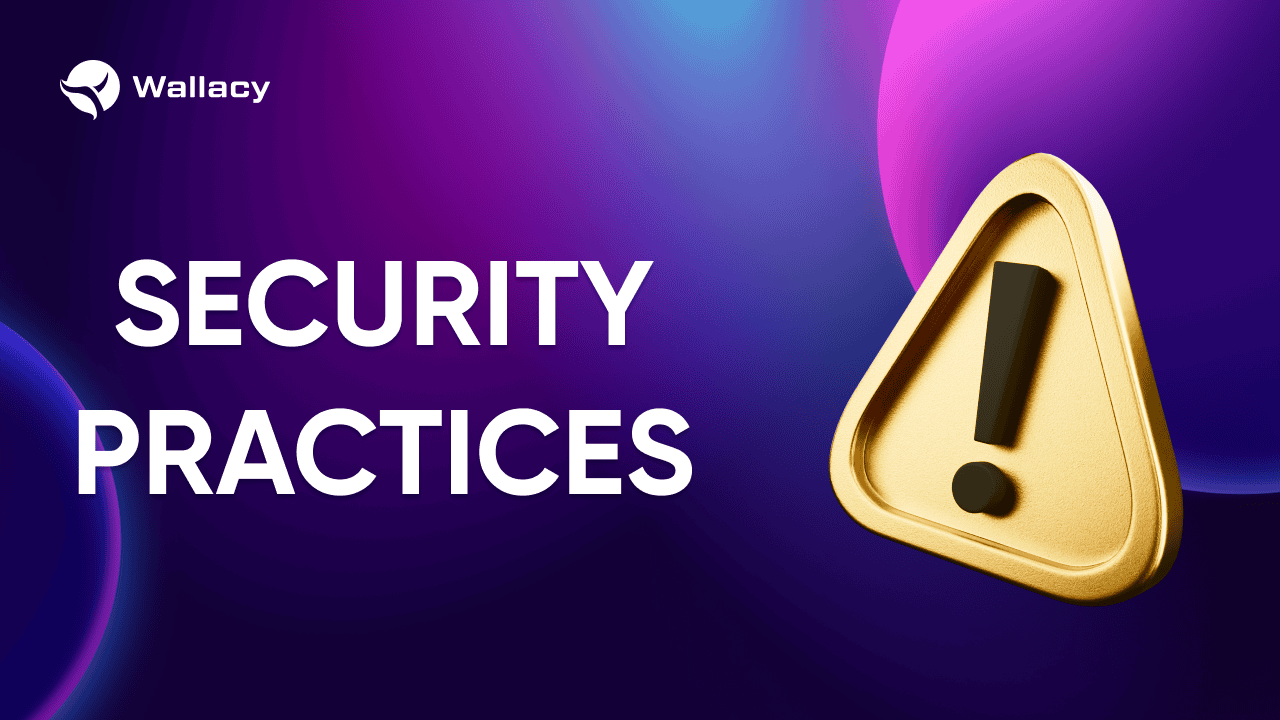Crypto Wikipedia
Search our knowledge base or browse categories below.
Security practices

Some security practices to help protect your cryptocurrency assets:
- Use a hardware wallet: Hardware wallets such as Ledger, Trezor or KeepKey provide a secure way to store your private keys offline, away from potential threats such as malware or hacking attempts.
- Enable two-factor authentication (2FA): 2FA adds an extra layer of security by requiring a second form of authentication, such as a code sent to your phone or an authentication app, in addition to your password.
- Keep your private keys secure: Never share your private keys with anyone, and keep them in a secure place such as a hardware wallet or a paper wallet. Do not store your private keys on your computer or mobile device, as these can be vulnerable to hacks or malware.
- Use strong passwords: Use unique, strong passwords that are not easily guessable or reused on other accounts. Consider using a password manager to generate and store complex passwords.
- Keep your software up to date: Keep your wallet software, operating system, and antivirus software up to date with the latest security patches and updates.
- Use reputable exchanges and Dapps: Only use exchanges and Dapps that have a solid reputation and use robust security measures, such as two-factor authentication, SSL encryption, and cold storage of funds.
- Be cautious of phishing attacks: Beware of phishing attacks, which can be attempts to trick you into sharing your private keys or personal information. Always verify the authenticity of emails or messages before clicking on links or sharing sensitive information.
- Avoid public Wi-Fi and unsecured networks: Do not use public Wi-Fi or unsecured networks to access your cryptocurrency accounts or wallets, as these networks can be vulnerable to hackers or man-in-the-middle attacks.
By following these security practices, you can help protect your cryptocurrency assets and minimize the risk of theft or loss.